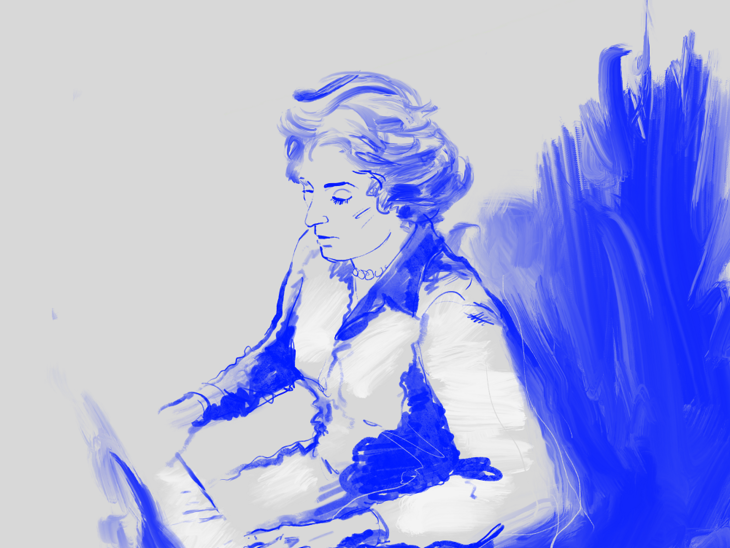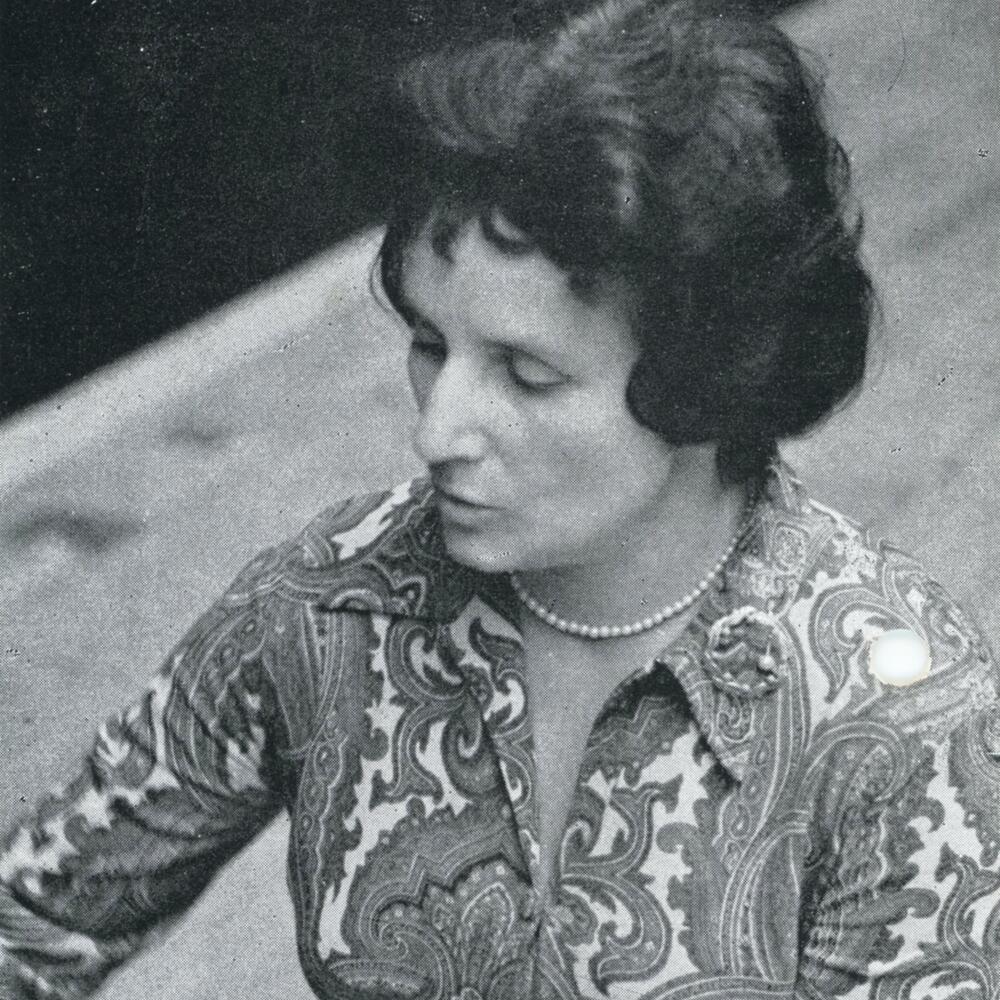
Against oblivion: when Cécile Chaminade (1857-1944) looked back on her extremely productive life of some 400 compositions two years before her death, she seemed skeptical: "I hope not to be forgotten."
International Mozart Competition - Piano: Livestream of the second round on 16 & 17 February from 10 a.m. to 1 p.m. and 3 p.m. to 6 p.m.

At a time when the diversity of classical music is often overshadowed by a narrow canon of works, the organisers of the Erika Frieser Chamber Music Days have made it their mission to shine a light on those pieces and composers that are often overlooked and rarely - or never - heard in this country. In the course of three concerts, each showcasing a different constellation of instruments, teachers and students of the Mozarteum University as well as renowned guests bring to life an enormous range of musical forms of expression in an impressive way.
Erika Frieser Chamber Music Days
Artistic Director:
Biliana Tzinlikova
The festival is not only a high-calibre celebration of chamber music, but also an active contribution to the expansion and diversification of everyday musical repertoire.
In 2021, the Erika Frieser Chamber Music Days were founded by Biliana Tzinlikova, teacher of piano chamber music at the Mozarteum, in collaboration with the Institute for Equality & Gender Studies at the Mozarteum University. The festival was conceived with the vision of giving greater exposure to works by female composers, which are still underrepresented in concert programmes. The festival, which takes place approximately every one and a half years, aims to transcend the boundaries of what is "heard always and everywhere" and present not only works by female composers, but also consciously give space to the creative palette of all non-canonical composers, whose pieces often remain in the shadow of the familiar or discourse-defining works. The tonal diversity of the chamber music spectrum will be explored in three concerts, ranging from duo, trio and quartetPLUS combinations and orientated towards different instrumentation sizes and possibilities. The Erika Frieser Chamber Music Days are characterised by a unique, tangible artistic synergy, as each concert programme is created in close collaboration with all participants, with teachers and students of the Mozarteum University performing side by side with renowned guests.
The festival is dedicated to Erika Frieser (1927-2011), who was the first woman to hold a professorship for piano chamber music, vocal and instrumental accompaniment at the Mozarteum between 1973 and 1995.

Erika Frieser was born on 24 September 1927 as the daughter of Rudolf Frieser (1895-1966) and Gisela Frieser (née Peikert, 1896-1971) in Aussig (now Ústí nad Labem, Czech Republic) in northern Bohemia. She learnt the basics of her musical craft from her father, who was a pianist. In 1939, the family moved to Cologne to enable their daughter to study piano. She was initially taught at the Rheinische Musikschule by Frieda Stahl, a pupil of Theodor Leschetitzky. Prof Hermann Pillney then took on the talented pupil at the State Academy. In March 1943, Erika Frieser obtained her school leaving certificate in Cologne. In July, shortly before the destruction of Cologne, the Friesers moved to Vienna to further their daughter's piano studies. Prof Friedrich Wührer and later Prof Josef Dichler accepted her into their classes at the Vienna Academy of Music. The turmoil of the war took Erika Frieser to Salzburg in 1945. Here she was finally able to continue her studies, as the "Mozarteum" was the first music academy to reopen after the war. There,the finishing touches to her artistic training were provided by Professor Franz Ledwinka, with whom she passed her concert exam in June 1946.
That same summer, Erika Frieser began her career as a soloist with a debut at the Salzburg Festival. Under the direction of Erneste Ansermet, she took on the piano part in Igor Stravinsky's ballet Petrushka in a concert with the Vienna Philharmonic Orchestra. In autumn, she gave her first solo recital at the Vienna Musikverein. In the Brahms Hall, she presented a demanding programme with works by Johannes Brahms, Paul Hindemith, Joaquín Turina and Franz Liszt. At the age of twenty, she gave up the teaching career she had begun at the Mozarteum and returned to Germany to further establish herself as a concert pianist. However, Salzburg did not forget her - the Mozarteum proudly reported in its annual review on the great success of its graduate at the German Piano Competition (with Walter Gieseking on the jury) in Frankfurt am Main in 1947: Erika Frieser had won first prize! This success gave the young pianist a major career boost with numerous solo engagements.
From 1947 to 1951, Erika Frieser lived with her parents in Karlsruhe.
After marrying the pianist Paul Traut in 1950, she lived with her husband in Cologne, where he taught at the conservatory. During this time, the two also performed as a piano duo. The magazine HÖR ZU wrote at the time: "Their artistic harmony is at its best when they play four-handed or on two pianos." After her divorce in 1957 - the marriage remained childless - she took her maiden name again, settled in Dabringhausen (north of Cologne) for twelve years and focused entirely on her career as a pianist. In addition to her many appearances as a soloist - under renowned conductors such as Josef Keilberth, Clemens Krauss, Othmar Suitner, Hans Rosbaud, Gary Bertini and many others - Erika Frieser now devoted herself increasingly to chamber music.
In the 1950s (1952-1960), she formed the Vienna Trio together with the violinist and Mozarteum professor Christa Richter-Steiner and the solo cellist of the Vienna Radio Orchestra Beatrice Reichert. From 1957, she was a long-standing duo partner of cellist Gerhard Mantel, with whom she undertook numerous tours of the USA, South America, the Middle East, India, Japan and most European countries. According to the artist herself, the duo gave over 750 concerts in 16 years. Seven recordings were made for the da Camera label with works by Edvard Grieg, Felix Mendelssohn Bartholdy, Max Reger, Hans Pfitzner and Richard Strauss. The duo's speciality were the numerous performances performed from memory. In 1970, Frieser founded the Beethoven Trio with her duo partner Mantel and the violinist Rudolf Koeckert, with whom she performed regularly until 1976. This was followed by the formation of a piano quintet with members of the Brno String Quartet (Lubomír Cermák, Karel Hejl, Bohuslav Fiser, Martin Svajda) and the founding of the Elmau Trio (with Lubomír Cermák and Boris Pác).
In 1969, Erika Frieser moved her main residence to Austria, where she settled in Hof bei Salzburg. Her newly discovered aim in life was to channel her diverse pianistic experience into teaching. In 1971, she applied to the Mozarteum with an impressive artistic curriculum vitae, claiming two years later: "I would like to continue living in Salzburg and pass on my rich concert experience to young people." (Curriculum vitae of Erika Frieser on 11 July 1973 / Kunst-Archiv Salzburg). In autumn 1973, Frieser finally received her first teaching position in the subject "Piano, Vocal and Instrumental Accompaniment" at the Mozarteum and negotiations were soon held regarding an appointment as "Associate University Professor", the common professional title at the time. According to the Rector's Office, she took up a professorship with 20 teaching hours on 21 March 1975. Erika Frieser always managed to reconcile her demanding teaching activities with her numerous concert appearances. Her skill and organisational talent also benefited the Mozarteum when she was elected head of department in the 1979/80 academic year. She reached the pinnacle of her university career on 1 October 1982 when she was appointed "Full Professor of Piano Chamber Music, Vocal and Instrumental Accompaniment at the Mozarteum University of Music and Performing Arts in Salzburg". Frieser continued to organise her major concert tours tirelessly, for which she always had to obtain a permit from the Federal Ministry. An application from 1982 shows how determined she was: "I apologise for submitting my application relatively late. This tour [Athens (Greece), Cairo and Alexandria (Egypt), Amman (Jordan), Beirut (Lebanon), Damascus and Aleppo (Syria)] has been planned for a long time, but I had doubts about being able to realise it because of the operation on both my hands (carpal tunnel syndrome) and the post-operative complications that arose. Over the last few days, however, it has become clear that I will be able to play again from mid-February." Whenever possible, the piano teacher offered piano masterclasses during her concert tours, for example in Japan in 1987 - a practice she had long been cultivating in Europe. In addition to her own students, numerous musicians around the world also benefited from her artistry. Professor Erika Frieser retired in 1995. She died on 25 September 2011 at the age of 84.